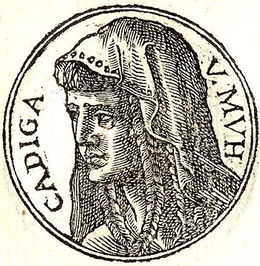Template:Pictorial-Islam-options: Difference between revisions
| [checked revision] | [checked revision] |
mNo edit summary |
mNo edit summary |
||
| Line 1: | Line 1: | ||
<noinclude>Also see: [[Template:Pictorial-Islam]]</noinclude><!-- HELP NOTES: Each option tag handles one random story --><choose> | <noinclude>Also see: [[Template:Pictorial-Islam]]</noinclude><!-- HELP NOTES: Each option tag handles one random story --><choose> | ||
<option weight="1">{{Pictorial-Islam|1=Arab Transmission of the Classics|2=[[File:SophoclesTurk.gif|190px|link=Arab Transmission of the Classics]]|3=The Arab transmission of the classics is a common and persistent myth that Arabic commentators such as Avicenna and Averroes 'saved' the work of Aristotle and other Greek philosophers from destruction. According to the myth, these works would otherwise have perished in the long European dark age between fifth and the tenth centuries. Thus the versions of Aristotle used in the West were translations from the Arabic, which came from the South West of Europe in the reconquest of Spain from the Muslims during the twelve and thirteenth centuries. | |||
This is incorrect. It was actually the Byzantines in the East who saved the ancient learning of the Greeks in the original language, and the first Latin texts to be used were translation from the Greek, in the 12th century, rather than, in most cases, the Arabic, which were only used in default of these. ([[Arab Transmission of the Classics|''read more'']])}}</option> | |||
Revision as of 11:04, 28 January 2014
Also see: Template:Pictorial-Islam
|
